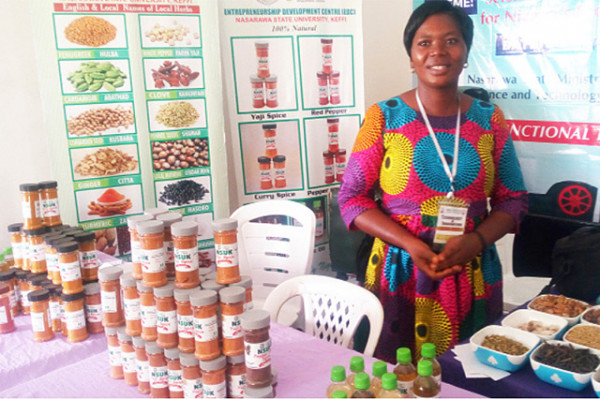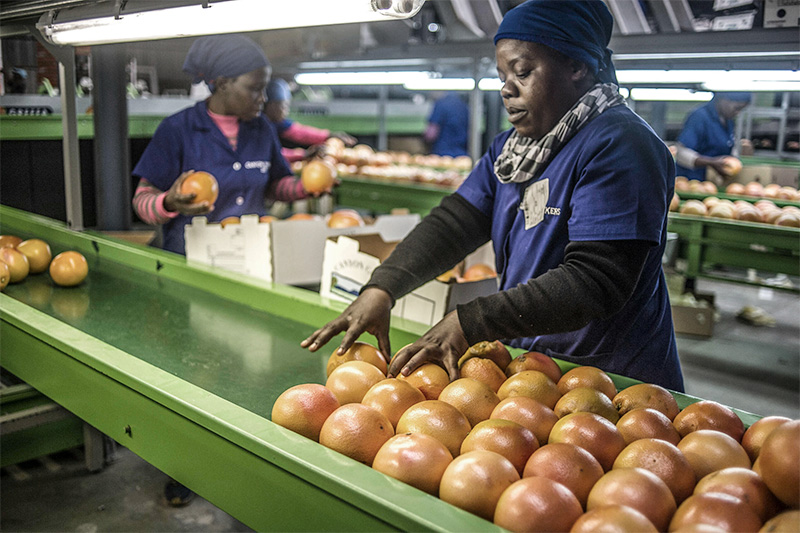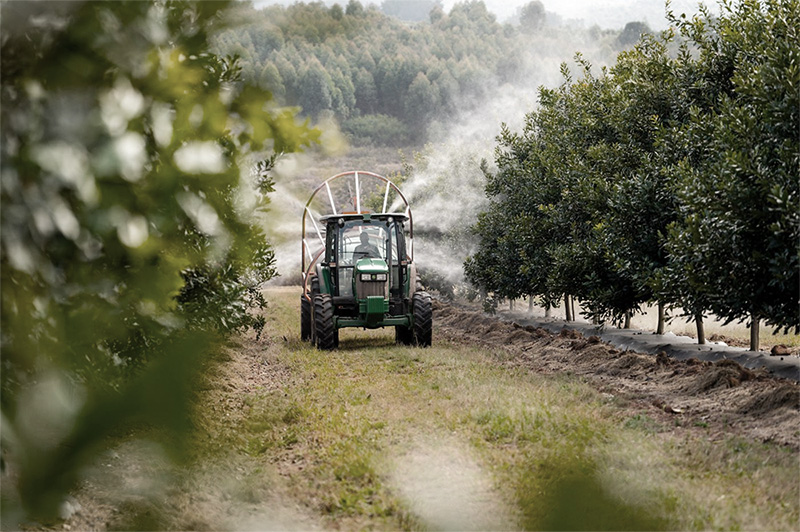Nigeria can harvest $2bn from yearly spices export
Professor Haruna Dikko Ibrahim is the Director-General Raw Material Research and Development Council (RMRDC) Abuja. In this interview, he explains the huge potentials Nigeria can generate from the export of spices. Excerpts:
Can you give us an idea into the global trade of spices?
The global seasonings and spices market is on an upward trend. The spice market was valued at about USD 15.11 billion in 2017 and is expected to reach approximately USD 20.99 billion by 2024, a growth rate of about 5.0% per annum between 2018 and 2024.
USA is the largest importer of spices, followed by Germany and other parts of Europe and Middle East. World major producers of spices include India (1.6million tonnes/annum), China (99,000 tonnes/annum), Bangladesh (48,000 tonnes/annum), Pakistan (45,000 tonnes/annum) and Nepal (15,000 tonnes/annum).
India exports spices to more than 150 countries. The share of India is about 44% in output and 36% in the global spice trade.
Let me point out that the Indian government is very keen on increasing value-addition in spices with the government spending nearly $250 million from 2008 – 2013 in building infrastructures to boost spice exports from the country. To promote spice research and development, the Central Food Technological Research Institute, Mysore, was mandated to focus on spices like ginger for value-addition.
There is also a Spice Board of India which promotes Indian spices globally and provides quality control, certification and exporter registration services.
What is the status of spices development in Nigeria?
Spices are popular among Nigerians, although most of the Nigerian spices grow in the wild. In Nigeria, spices are generally found in the Forest (including mangrove and rainforest), Dried Savanna, Guinea Savanna and Sudan Savanna.
The bulk of the spices identified in Nigeria are found in the Southern rainforest zone of the country, while others such as garlic and ginger are found predominantly in the dry Northern zone. Nigerian farmers cultivate spices such as curry (Murrayakoenigii), sweet basil (Ocimumbasilicum), bush tea (Ocimumgratissimum), ginger (Zingiberofficinale), guinea pepper (Xylopiaaethiopica), African black pepper (Piper guineense) and turmeric (Curcuma longa).
Ginger and African black pepper are the major Nigerian spices in the international market, the rest are consumed locally. Black pepper is the largest traded spice worldwide, attracting the highest amount per ton, followed closely by chilli pepper.
Domesticated spices in Nigeria are cultivated mostly as mixed crops with most staple crops under rain-fed or irrigated conditions. There is large scale farming of ginger, onions, pepper, chillies and garlic, while black pepper, guinea pepper, African nutmeg, turmeric, cumin, amongst others are mostly in the wild. About 48% of indigenous spices have not been domesticated and are harvested from the wild. With urbanization and gregarious depletion of forests, the wild plants are fast disappearing.
Some of the challenges facing spice production in Nigeria include lack of domestication and cultivation, influx of exotic spices, destructive methods of harvesting, low quantity and quality of harvest, bush burning, deforestation, lack of appropriate process technology and low level of investment in research and development activities.
Which areas has your organization, the RMRDC intervened in Spices Development?
The Raw Materials Research and Development Council (RMRDC) has been working on partnering with entrepreneurs and researchers to improve spices production, processing and marketing in Nigeria. Our programme towards the development of the sector is multidisciplinary in approach and consists interjections in production, processing, packaging and export.This is important as there is a need for us as a nation to take stringent measures in ensuring that spices production, processing and packaging are in line with international standards.
One of our major areas of promoting development in this sector is the promotion of increased production and productivity of ginger under farmers’ condition as early as the 1990s. The programme which was carried out in collaboration with the National Root Crops Research Institute, Umudike boosted ginger production by distributing improved varieties of ginger rhizomes to farmers associations in selected States of the Federation. Improved varieties of pepper and onions were also distributed to farmers associations in the Local Government Areas of Plateau State.
Likewise, the Council has commenced the development of Stevia rebediana under its Strategic Projects Programme. In 2018, the Council continued collaboration with a Chinese Company, Kong Associates that is developing Stevia in Nkoranza region of Ghana.
Through the collaboration, the Company provided the Council with about 20kg of seeds for trial purposes. Although, the Stevia planted did not perform optimally as germination rate was low in 2019, the Council is collaborating with a local Consultant, Mrs. Saidat Shonoiki, a sustainable agribusiness expert who is collaborating with Stevia cultivators and processors in Kenya and Cameroun.
This is with a view to bringing improved tropicalized Stevia seeds and seedlings for multilocational trials locally.
Our efforts on Stevia development is premised on its high demand in the chemicals, pharmaceutical and food industries. Presently, more than 5 billion naira is expended on Stevia products importation. One aspect of spices development that must be promoted with adequate care is the processing of indigenous spices.
To achieve this, the Council entered into a joint venture agreement with Ireyeeorise Dry Spices FSP Multipurpose Cooperative Society Limited (IDS), Warri, Delta State and upgraded their processing facilities and packaging technology.The Council collaborated with the National Root Crops Research Institute, Umudike to develop and invent a ginger splitting machine. The machine is now being deployed by farmers. Ginger drying equipment was also invented in collaboration with Farm Industries, Owerri.
The machines were installed for use by Mbaitoli Local Government Area Ginger Growers Association in Imo State.To promote increased production, the Council upgraded spice process technology at Tripartite Farmers International, Owerri, Imo State through the provision of hammer mill to the group.In addition, the spice research laboratory at the Federal University of Technology Owerri (FUTO) was upgraded with Liquid-Gas Chromatography and UV/Visible Spectrophotometer by RMRDC to promote analysis of spice components and products.
Are there partners you’re collaborating with in this?
To promote a solid base for investments in spices processing locally, the Council also collaborated with three SMEs (Life Builders International, Ibadan; Grace Fellowship, Biu, Borno State and Avuco Nigeria Ltd, Kaduna) involved in the production of spices from Moringaoleifera and upgraded their packaging machines and production skills. The efforts led to the commercialization of the products. In the same vein, the Council is collaborating with Belphins Nig. Ltd to set up an investment project on Split-dried ginger production in Nigeria.
The plan is to procure two units of the process plant and set up one as a cottage industry, while the second plant would be used for reverse engineering to build local capacity. Each complete set of the plant comprises a splitting machine, dryer, washing machine and digital moisture meter. We are also collaborating with Tiger Foods Ltd, Onitsha on local sourcing of spice raw materials for processing. To encourage utilization of locally produced ginger oleoresins by Nigerian industries, the Council is collaborating with Belphins Nig. Ltd., Kaduna, and Tiger Foods Ltd., Onitsha, to improve the quantity of quality ginger oleoresin produced in the country.
Samples of oleoresin produced by Belphins Nig. Ltd were analysed independently by the Institute of Public Analysts of Nigeria (IPAN) and National Agency for Food and Drug Administration and Control (NAFDAC). The results indicated that the products compare favourable with imported ones.Based on this, Belphins Nigeria Ltd has been able to export its products to Europe. We are not unaware of the fact that a number of industries using oleoresins in Nigeria may not know it is being produced locally.
As a result, a comprehensive documentary on spices produced locally was sponsored by RMRDC and aired severally on NTA International. This led to increased demand for locally produced spices, most especially the oleoresins.
Apart from the local market, and maybe sporadic export opportunities, is there any sustainable export market that investors can target or take advantage of globally?
Nigeria can take advantage of the African Growth and Opportunity Act (AGOA) to develop the spice trade. AGOA is a piece of legislation that was approved by the U.S.A Congress in May 2000. The purpose of the legislation was to assist the economies of Sub-Saharan Africa and to improve economic relations between the United States and the region. At the completion of the initial 15-year period of validity, the AGOA legislation was further extended on 29 June 2015 by 10 years, to 2025.
Exporters in Nigeria still have opportunity to explore the benefits of AGOA till 2025. I wish to state that although the level of exports from the country under AGOA went up from about $3.4 billion to $6 billion in 2017, most of the growth was in the oil sector. The country’s agricultural exports to the United States under the Act increased only from about $3 million to $9 million in 2017.Cameroon, Kenya, DR Congo, Gabon, Ghana, Madagascar and Rwanda have taken the opportunity in AGOA to expand their exports from other sectors of their economies.
Other challenges that hinder the realization of the economic impact of AGOA in Nigeria include lack of sanitary and phyto-sanitary requirements, problem of labeling, packaging and quality, lack of product-specific standard and supply-side constraints such as inability to meet up with large volume of orders from USA and weak competitiveness as a result of weak infrastructure facilities and lack of finance.













